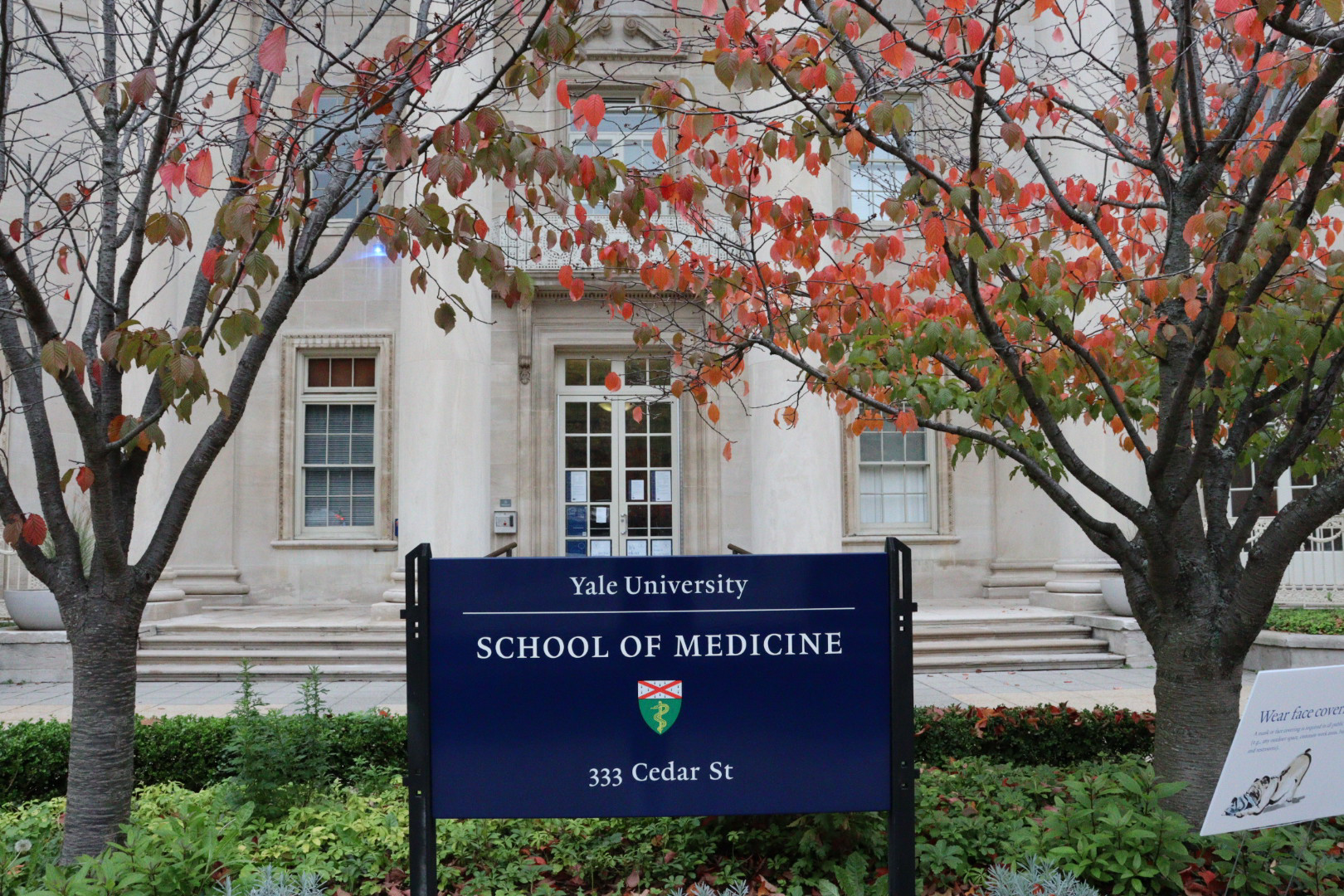School of Medicine holds third medical spelling bee. Balanoposthitis was the winning word
Medical terminology is notoriously challenging to both laypeople and medical students alike. On March 19, Yale graduate students competed to see who was the best speller of them all.

Hedy Tung
Epistaxis, choledocholithiasis, sphygmomanometer. They’re a medical mouthful.
Medical terminology is notoriously challenging to laypeople and medical students alike.
On March 19, Yale students put their spelling brains to the test in a Medical Spelling Bee hosted at the School of Medicine. Contestants represented various Yale disciplines, including students from the School of Medicine and the School of Public Health. In the end, Shaila Ghanekar MED ’27 a second-year medical student, who also won the competition last year, and Saba Saidi a second-year medical student from Albert Einstein College of Medicine won after correctly spelling balanoposthitis, an inflammation of the penis.
After correctly spelling pinguecula, a raised bump on the eye, the second place team was eliminated on chenodeoxycholic, a bile salt. The third place team fell to collodion, a wound sealant, after spelling borborygmi, the sound of a digesting stomach, correctly.
“Given how many new words healthcare trainees have to learn, I figured it would be a fun way to bring people together across professional disciplines and laugh at the ridiculousness and complexity of some of the medical words that exist,” said Noah Brazer MED ’27, a second-year medical student and the organizer of the event.
Brazer conceived the idea when he watched Akeelah and the Bee on a flight to New Haven. In the movie, Akeelah Anderson, a young girl from Los Angeles, enters the National Spelling Bee competition and wins after spelling “pulchritude”.
The inaugural Med Bee took place last spring, and Brazer has organized one each semester since. Brazer says in order to convince friends to show up to the first Bee, and to raise sufficient funds, he promised to dress up in light of the occasion.
Brazer got his way and, true to his word, “dressed up in bee drag and performed to Imma Bee.”
The Spelling Bee was divided into two parts: Jeopardy-style rounds where individuals or teams wrote down words and a classic elimination-style spelling bee.
The Jeopardy rounds were divided into five mini-rounds, each with five words: Warmup; Double Dose, featuring harder words worth double points; Pharmacophilia, covering generic drug names; Elusive Eponyms, focused on proper nouns; and Have You Heard?, showcasing words most people have never heard of.
Only some top contestants advanced into the classic spelling bee. In this round, teams stood at the podium and spelled words out loud, and were eliminated if they misspelled a word. Generous to his competitors, Brazer incorporated opportunities for teams to earn their spot back.
“The most magical part of the medical spelling bee is how many people show up from different programs: MD students, PA students, PHD students, MPH students and even medical and dental residents,” Eliza Epstein MED ’27 wrote to the News. “On top of the activity itself, I always look forward to meeting new people there!”
Although this year’s turnout was lower than expected — with six rather than 15 teams — Brazer says the teams were skilled and were able to advance to the “the hardest level of difficulty (sudden death).”
“To me the Spelling Bee reflects the energy and uniqueness of Yale School of Medicine students,” Dr. Randi Epstein MED ’90, the Bee’s faculty advisor, told the News. “Why fret about the multi-syllabic hard-to-pronounce jargon? Just turn the learning process into a fun evening out with your classmates.”
Last year’s winning words were Escherichia, the long form of E. coli, and chikungunya, a mosquito-borne virus, which took second place.







